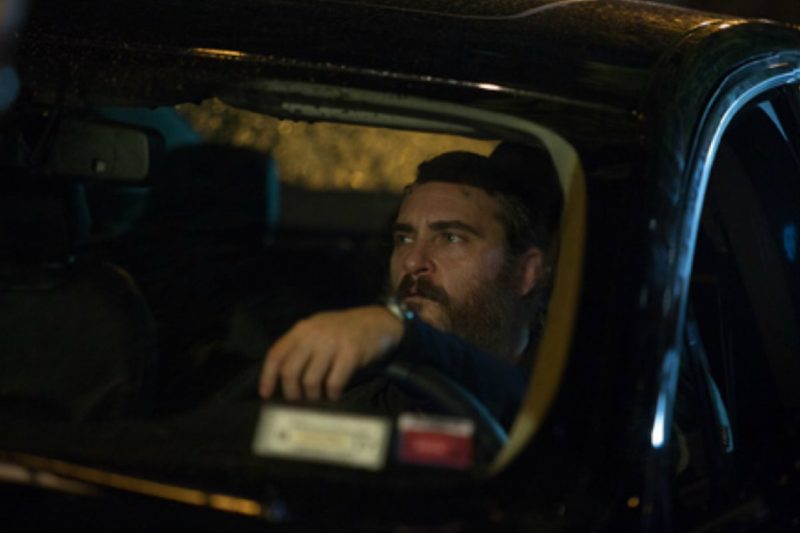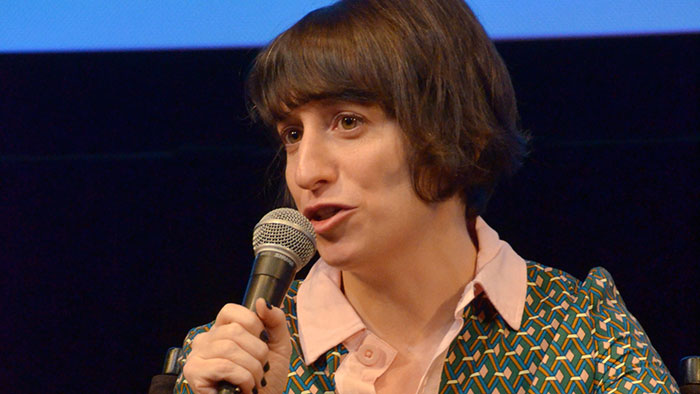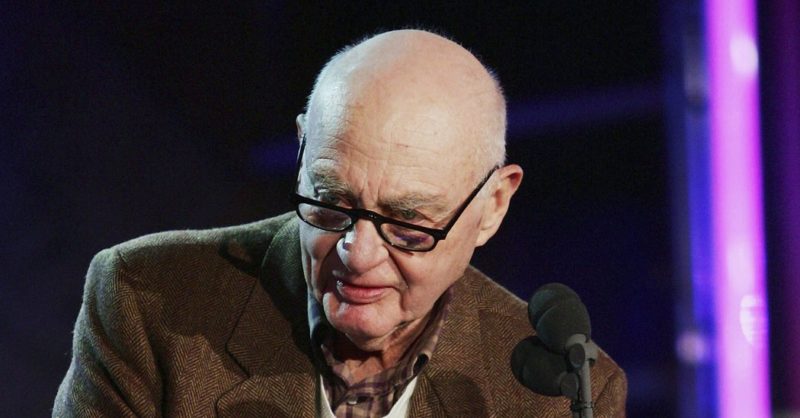News Digest
Joaquin Phoenix on You Were Never Really Here

“Our approach was trying not to solidify any one moment and trying to create situations that felt unpredictable,” Joaquin Phoenix said at Cannes when You Were Never Really Here had its world premiere there last spring. Starring Phoenix as a killer for hire, Lynne Ramsay’s first feature release since We Need to Talk About Kevin (2011) had been much anticipated before arriving at the weary tail end of the festival. Ramsay’s thriller resurfaces later this month for its U.S. premiere at the Sundance Film Festival in advance of its theatrical release in the spring.
In Ramsay’s adaptation of the 2013 book by Jonathan Ames, Phoenix’s off-kilter mercenary, Joe, goes on a hit job that spins out of a control. Ramsay kits out the film with backstory flashbacks and touches of magical realism. Amazon Studios, the film’s distributor, has been marketing the film with a slick trailer and a hashtag playing up Joe’s weapon of choice: #BringTheHammer.
Phoenix—to whom I posed questions in a Cannes suite packed alongside other journalists from outlets including Deadline—spoke of trying to get some air into his character’s dark emotional world.
“I was afraid that it was going to be too morose and somber,” the 43-year-old star said, singling out Joe’s home life with his addled mother (played by Judith Roberts). “A lot of the stuff with the mom initially just felt very oppressive and quiet. So I tried to find some personality and a dynamic between them that felt more lively. That felt important.”
For his troubles, Phoenix won the award for best actor at Cannes, shortly after its red-carpet premiere. It was a prize he apparently had not entertained the possibility of receiving. “My shoes were sent home on the plane,” he said in his acceptance remarks by way of apology for wearing sneakers. “Thank you to Ted Hope and Amazon.”
At Ramsay’s press roundtable, the filmmaker reflected on shooting her first feature in digital, and said the medium let her be freer with actors while producing ample material to work with. It remains to be seen whether the release version of the film will differ from the one press-screened without credits in Cannes, where Ramsay genially referred to journalists as “my test screening.”
“As this film progressed, it changed dramatically. Certainly the last third is different than what was scripted,” Phoenix said of the New York–set film. “We were looking for a different way to talk about the hero.”
You Were Never Really Here opens on April 6 in select theaters, one week after Mary Magdalene starring Phoenix as Jesus.—Nicolas Rapold
Production Round-Up

Eliza Hittman
Jordan Peele (Get Out) will serve as an executive producer for a new version of Twilight Zone, on streaming platform CBS All Access, which returns the Key & Peele ringleader to the small screen for the moment. In other platform-hopping filmmaker news, Andrea Arnold (American Honey) will direct all seven episodes of HBO’s second season of Big Little Lies, and Wong Kar Wai has been doing casting calls for Amazon’s Tong Wars, a 10-part crime drama set on the streets of San Francisco. Meanwhile, Eliza Hittman (Beach Rats) won a grant for her forthcoming film on a Pennsylvania youth seeking an abortion, Bi Gan (Kaili Blues) is working on Long Day’s Journey Into Night, and Luca Guadagnino is doing everything, including Burial Rites starring Jennifer Lawrence.
Dan Talbot in Memoriam

The death of art-house axiom Dan Talbot (1926-2017) brought sad news over the winter break. We’ll have more to say in tribute to Talbot, but for any film lover, his impact has been enormous, between exhibition at Lincoln Plaza Cinema, Cinema Studio, and Metro, and, through New Yorker Films, distribution of works by Kiarostami, Kieslowski, and many more. Not to mention the historic 1985 runs of Claude Lanzmann’s nine-hour-plus Shoah, of which Talbot once said to me, “It was for me the most important film I have released.” On a personal level, I owe Talbot an enormous debt for feeding my hunger for movies at impressionable ages at Lincoln Plaza Cinema, with marathons of the Decalogues or eye-opening screenings of Kids. His efforts with Toby Talbot helped create a renewed golden age of the art house, and provided access to a world of cinema that we all still explore to this day.—Nicolas Rapold







